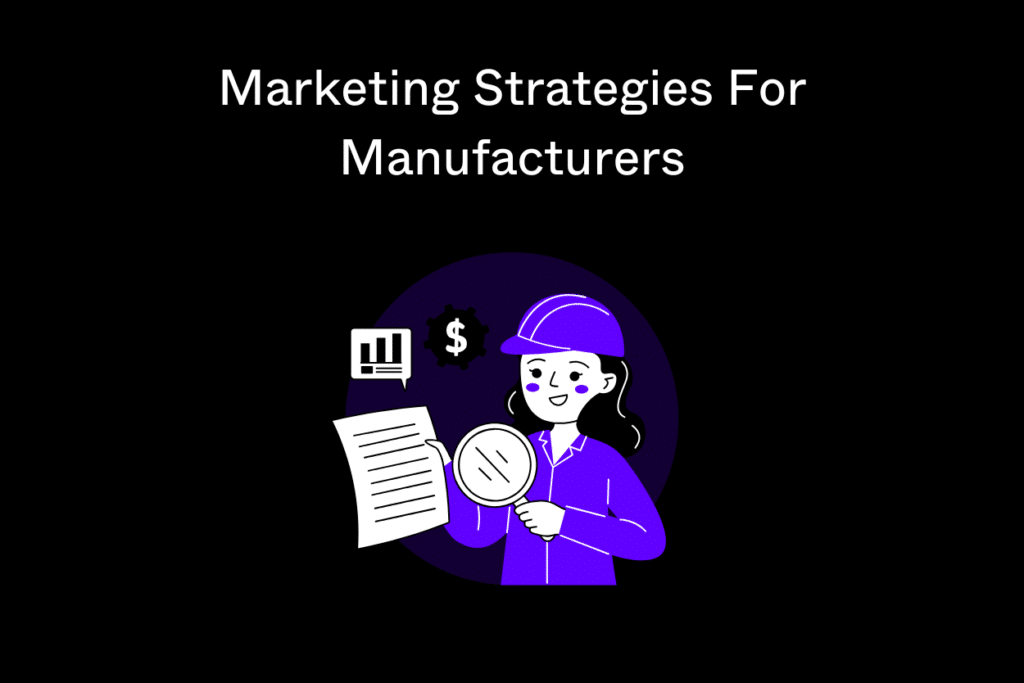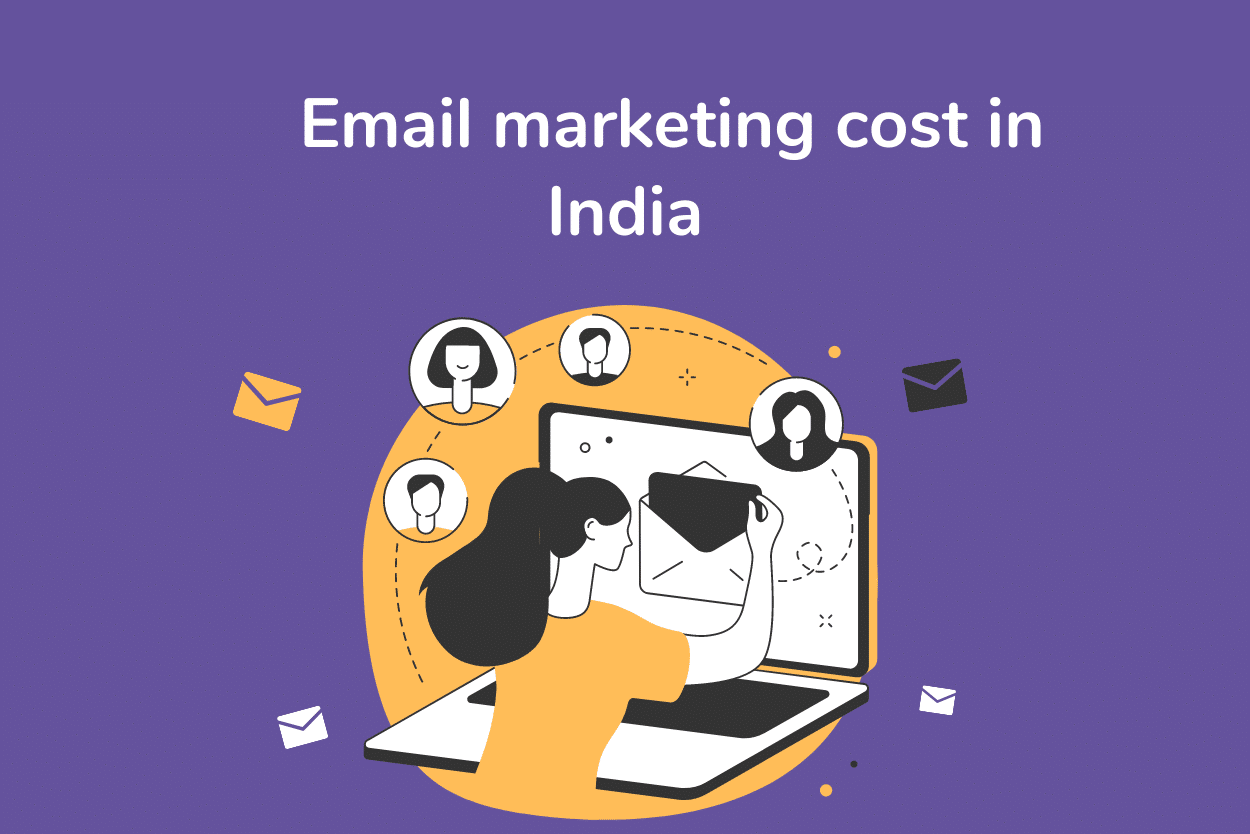
Marketing strategies for manufacturers are crucial in today’s competitive landscape. Unlike consumer-focused companies, manufacturers often cater to other businesses (B2B), requiring unique approaches to engage their target audience.
According to a Forrester study, companies that implement lead nurturing generate 50% more sales at just one-third of the cost compared to those that do not engage in lead nurturing.
Manufacturing companies need to establish trust, maintain long-term relationships, and present themselves as industry experts. In this blog, we will explore the top marketing strategies for manufacturers, along with the importance of marketing, challenges, and the key differences between B2B and B2C approaches.
What is Marketing for Manufacturing?
Marketing for manufacturing focuses on promoting manufacturing companies’ products or services to other businesses. Manufacturers operate in a highly competitive B2B environment, where establishing long-term relationships and trust is paramount. Unlike consumer markets, where emotional triggers often drive purchases, manufacturing marketing is based on data, technical specifications, and a thorough understanding of the business’s needs.
Manufacturers must use tailored marketing strategies to differentiate themselves from competitors, highlight their technical expertise, and address the specific pain points of other businesses. This involves combining traditional techniques with modern digital marketing strategies to maximize visibility and attract new business opportunities.
7 Best Marketing Strategies For Manufacturers
1. Optimize Your Website for Searches (SEO)
Search engine optimization (SEO) is the foundation of any successful marketing strategy for manufacturers. By optimizing your website for relevant industry keywords, manufacturers can increase their visibility on search engines like Google.
This involves conducting thorough keyword research, improving on-page SEO (title tags, meta descriptions, etc.), and creating high-quality content that speaks to the needs of potential clients. Technical SEO elements, such as mobile responsiveness and website speed, are also crucial for maintaining rankings and delivering a seamless user experience.
2. Pay-Per-Click (PPC) Advertising
PPC advertising is an effective way for manufacturers to gain immediate visibility on search engines. By bidding on targeted keywords, manufacturers can appear at the top of search engine results pages (SERPs) and attract potential customers.
PPC campaigns allow you to control your ad spend and target specific industries or locations. Best practices include using highly relevant keywords, setting a clear budget, and continuously optimizing campaigns for better performance.
3. Test Your Website for Conversion Optimization
A high-performing website doesn’t just attract traffic; it converts visitors into leads or clients. Conversion rate optimization (CRO) is essential for maximizing the effectiveness of your marketing efforts. Regular A/B testing on key elements such as call-to-action (CTA) buttons, landing page designs, and form fields helps identify what works best in driving conversions. Improving user experience (UX) is another critical factor in ensuring that visitors engage with your content and eventually become customers.
4. Create Engaging Content and Media That Ranks
Content marketing is a powerful tool for manufacturers looking to demonstrate thought leadership and attract potential customers. High-quality blog posts, whitepapers, case studies, and product videos can showcase your expertise and offer solutions to the pain points faced by your target audience.
Creating SEO-optimized content that ranks on search engines helps build your credibility and authority within the industry. Educational content, such as how-to guides and industry insights, can significantly improve lead generation.
5. Use Social Media to Promote Products and Build Trust
Although social media might seem more suited for consumer brands, it plays a vital role in B2B marketing as well. Platforms like LinkedIn, Twitter, and YouTube are ideal for sharing thought leadership content, industry updates, and case studies.
Manufacturers can use social media to build trust, engage with industry professionals, and promote their products or services. The key is choosing the right platform for your audience and maintaining consistent, valuable content.
6. Make It Easy for Potential Clients to Contact You
Manufacturers often overlook the importance of simple yet effective contact methods on their websites. Ensuring that your website includes prominent CTAs, easy-to-find contact forms, and instant communication options (such as live chat or chatbots) is essential. Making it effortless for prospects to reach out to you can significantly improve lead conversion rates and enhance the overall user experience.
7. Leverage Email Marketing for Lead Nurturing
Email marketing remains one of the most effective strategies for manufacturers. By creating segmented email campaigns based on client interests, you can nurture leads through the sales funnel. A
utomated email sequences, such as follow-up emails after initial inquiries, product launches, and industry news updates, keep your business top of mind for potential clients. Personalizing email content and using data-driven strategies can significantly increase engagement and conversions.
The Importance of Marketing for Manufacturers
Marketing is the driving force behind business growth in the manufacturing industry. It not only helps manufacturers expand their market reach but also strengthens relationships with existing customers.
Through effective marketing, manufacturers can build brand awareness in a competitive B2B environment, generate qualified leads, and position themselves as leaders in their niche.
Additionally, marketing provides a way to communicate a manufacturer’s unique value proposition, fostering trust and long-term business partnerships.
Differences Between Manufacturer and Consumer Marketing
| Aspect | B2B (Manufacturer Marketing) | B2C (Consumer Marketing) |
| Target Audience | Decision-makers within other companies | Individual consumers |
| Decision Factors | Technical needs, product performance, cost-effectiveness | Emotional appeal, personal desires |
| Sales Cycle | Longer, involving multiple stakeholders | Shorter, often a one-step decision |
| Messaging | Focused on logic, efficiency, and expertise | Appeals to emotions and lifestyle |
| Relationship Building | Crucial for building trust over long-term partnerships | Less focus on long-term relationships |
Objectives of Manufacturing Marketing
Manufacturing marketing aims to achieve several important goals:
Boosting Brand Visibility: Elevating your company’s presence in a competitive industry to stand out from the crowd.
Generating and Nurturing Leads: Attracting new prospects and guiding them through the buying journey to convert them into customers.
Enhancing Website Traffic and Engagement: Strengthening your online presence to drive more traffic and foster greater engagement, ultimately supporting business growth.
Challenges in B2B Manufacturer Marketing
Marketing for manufacturers presents unique challenges. One of the primary issues is the long sales cycle, where multiple decision-makers are involved, making it difficult to close deals quickly.
Additionally, building trust with highly technical products can be challenging, as it requires deep expertise and the ability to communicate complex ideas clearly. Manufacturers also face difficulties in creating content that resonates with highly technical buyers, which requires extensive knowledge of the industry and product.
Advantages of Using Marketing with Manufacturers
Manufacturers that adopt comprehensive marketing strategies can gain several advantages. These include:
Streamlining Communication: Marketing facilitates clearer and more efficient communication between manufacturers and their clients.
Leveraging Online Platforms for Greater Reach: Digital marketing allows manufacturers to reach a broader audience, particularly in niche markets.
Building Long-Term Partnerships: Consistent branding and messaging across channels help build trust and loyalty with B2B clients.
Conclusion
In today’s competitive landscape, manufacturers cannot afford to ignore marketing. Whether it’s optimizing your website for SEO, running targeted PPC campaigns, or leveraging content marketing, adopting modern strategies is key to staying ahead.
By understanding the unique challenges and differences in B2B manufacturing marketing, you can tailor your approach to drive business growth, build trust, and establish your brand as a leader in the industry. Don’t hesitate to explore these strategies to fuel long-term success.



![Marketing Manager Salary in India: Factors, Benefits, and Career Growth [2025]](https://wdcweb.com/wp-content/uploads/2023/01/Marketing-Manager-Salary-in-India.png)
